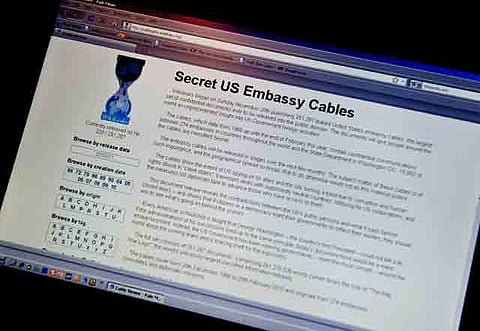WikiLeaks' cables far from earth-shattering
For the US, damage was already done by aggressive behaviour during the Bush era

The wait is over but the ‘leaks' are overrated. The over-hyped US embassy cables, published by the whistleblower website WikiLeaks, didn't tell us much that we don't already know. The leaked secret documents, which are the correspondence between the American embassies and the US administration on meetings between American officials and diplomats and foreign leaders, reveal what is supposed to be behind-the-scene talks. But most of the cables repeat what has been published by news agencies quoting the usual ‘officials who requested anonymity'.
That is the case with the Saudi officials suggesting an immediate stop "by all means necessary" to the Iranian nuclear programme or the cables that deal with the US view of Hamas or even Libyan leader Colonel Muammar Gaddafi. The documents are fun to read, for sure. And they make a good subject for political gossip. But earth-shattering revelations they are not.
Therefore, the US reaction to the leaks is perplexing. It is strange that the administration felt threatened by what was going to be published online. The legal threats and warnings of "endangering countless lives" were unnecessary and overzealous. It is doubtful the world public opinion of the US would radically change because of ‘cablegate'. And the Americans would be wrong if they thought the cables will do harm to the image of their country. The damage has already been done by years of aggressive behaviour, especially during the George W. Bush years and the inability — or perhaps unwillingness — of Barack Obama to improve that behaviour. The president should know it will not get any worse.
He must act on his promises to engage other countries. He must not try to ‘shoot the messenger'. The US administration has a chance to improve its relations with other countries, work towards fair settlements to conflicts such as the Arab-Israeli one and respect the sovereignty of other states.
Sign up for the Daily Briefing
Get the latest news and updates straight to your inbox



